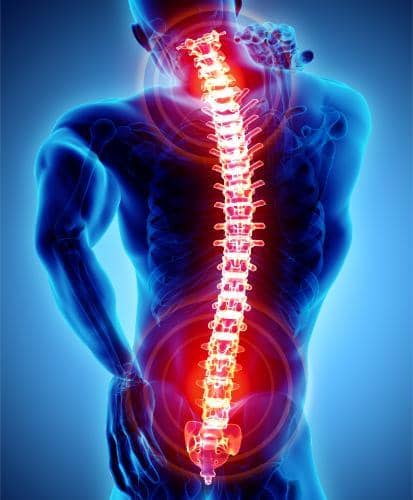Back pain refers to any aching, discomfort, or soreness that affects any of the spine’s four regions. Almost everyone experiences back pain at some time, but if your symptoms persist for more than a week or two, it might point to a more serious underlying health problem.
If your back pain adversely affects your ability to perform daily tasks, don’t wait to seek treatment. The sooner you take action, the sooner you can return to a better quality of life.
Table of Contents
ToggleWhat are some common causes of back pain?

Back pain occurs for various reasons. The team at Imaging & Interventional Specialists regularly treats back pain caused by:
- Fractured or broken vertebra
- Broken back
- Pinched nerves
- Herniated discs
- Arthritis
- Bulging or ruptured discs
- Osteoporosis
Another reason for back pain is muscle and ligament strains. This type of back pain is particularly common in athletes and individuals who work physically demanding jobs like construction.
Sometimes, pelvic pain triggers back pain. When left untreated, pelvic pain can radiate into your lower back, thighs, or buttocks.
How is back pain diagnosed?
To diagnose back pain, the Imaging & Interventional Specialists team reviews your medical history, asks about your symptoms and lifestyle, and conducts a physical exam. During the initial consultation, your provider assesses your ability to lift your legs, walk, sit, and stand. They might also ask you to rate your pain on a scale of 1 to 10.
If these measures don’t provide enough information to make a diagnosis, your provider might order blood tests, nerve studies, a bone scan, X-rays, or an MRI. You might also benefit from a discogram, an imaging test used to evaluate back pain.
How is back pain treated?
Treatment for back pain depends on the underlying cause, the severity of your symptoms, and the pain’s effect on your quality of life. Usually, the team recommends non-surgical, pin-hole treatments, such as:
- Nerve injections
- Steroid injections
- Vertebroplasty
- Kyphoplasty
Ultimately, treatment aims to ease discomfort, boost circulation, and trigger your body’s natural healing process. When combined, these factors can limit inflammation, allowing you to stay mobile and engaged with work or other activities.
What type of back pain treatment is right for me?
Only a qualified medical professional can determine the type of back pain treatment that’s right for you. After pinpointing the source of your discomfort, the team at Imaging & Interventional Specialists develops a custom care plan that aligns with your needs.
Don’t let back pain interfere with your quality of life; call the office at Imaging & Interventional Specialists to schedule an appointment or book a consultation online today.

